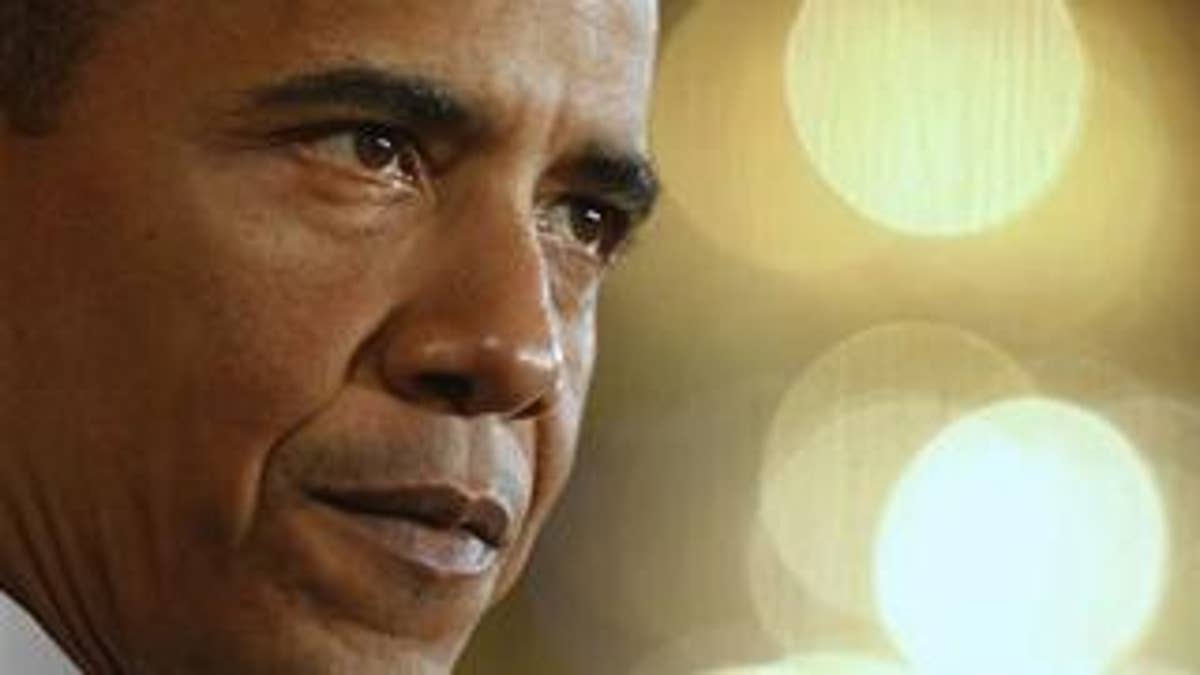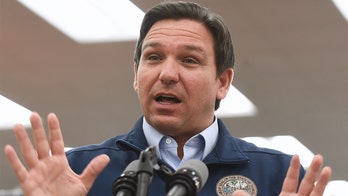
Giving President Obama the Nobel Peace Prize is a "premature canonization" and an "embarrassment" to the process of designating a laureate, a presidential historian says.
"The jury is still out as to what his presidency is going to add up to," Fred Greenstein, author and professor of politics emeritus at Princeton University, told FOXNews.com.
"It's more of an embarrassment to the Nobel process."
President Obama said Friday he was "most surprised and deeply humbled" to win the 2009 Nobel Peace Prize, adding that he accepts the honor as "a call to action to confront the common challenges of the 21st century."
In a brief statement in the White House Rose Garden on Friday, the president said he does not "view it as a recognition of my own accomplishments," but rather as a recognition of goals he has set for the United States and the world.
"I do not feel that I deserve to be in the company of so many transformative figures that have been honored by this prize," he said.
Obama will go to Oslo in December to accept the honor, which includes a $1.4 million award, Norway's prime minister said.
Greenstein said Obama is unlikely to gain any political advantage from the award, and it is unlikely to lead to any major policy changes.
Only two other sitting presidents, Theodore Roosevelt in 1906 and Woodrow Wilson in 1919, have been awarded the prestigious Peace Prize. Roosevelt was honored largely for brokering an agreement between Russia and Japan, and Wilson took the award for his role in ending World War I and creating the League of Nations.
It's far too early to compare Obama to either of his predecessors, said Allan Lichtman, professor of history at American University.
"They're not comparable," Lichtman said. "[Roosevelt and Wilson] were six or seven years into two-term presidencies, and Obama has not completed a single year of his presidency, so it makes very little sense."
Obama possesses a great deal of "promise," but the jury is still out, Lichtman said.
"It remains to be seen what his foreign policy legacy will be," he said. "It is premature. This was to encourage rather than to recognize an accomplished fact."
The award might even become a "political headache" for Obama, Lichtman said.
"On the one hand, his liberal base will be pushing him to live up to this," he said. "And his Republican critics will say a bunch of Scandinavians socialists have given this award to another socialist. You'll hear quite a bit of criticism from the right."
Stephen Wayne, professor of American government at Georgetown University, praised Obama's "good instincts" and strong belief in diplomacy, but said he failed to see accomplishments that merited the prize.
"It does seem to me, at this point, that's its premature," Wayne said. "When I first saw it, I thought it was a joke. Obama may have been the first to get it for his rhetoric and his orientation."
Wayne said he was "startled" to learn Obama had been nominated for the award less than two weeks into his presidency.
"What had he done by February? He had been the first African-American elected president and provided sawing rhetoric," Wayne said. "In one sense, Obama has always been more popular in Europe than in the United States. That popularity is based in part on the contrast he provides to former President George W. Bush, who was not popular in Europe. I am very favorable toward President Obama, but this prize is a surprise to me."




